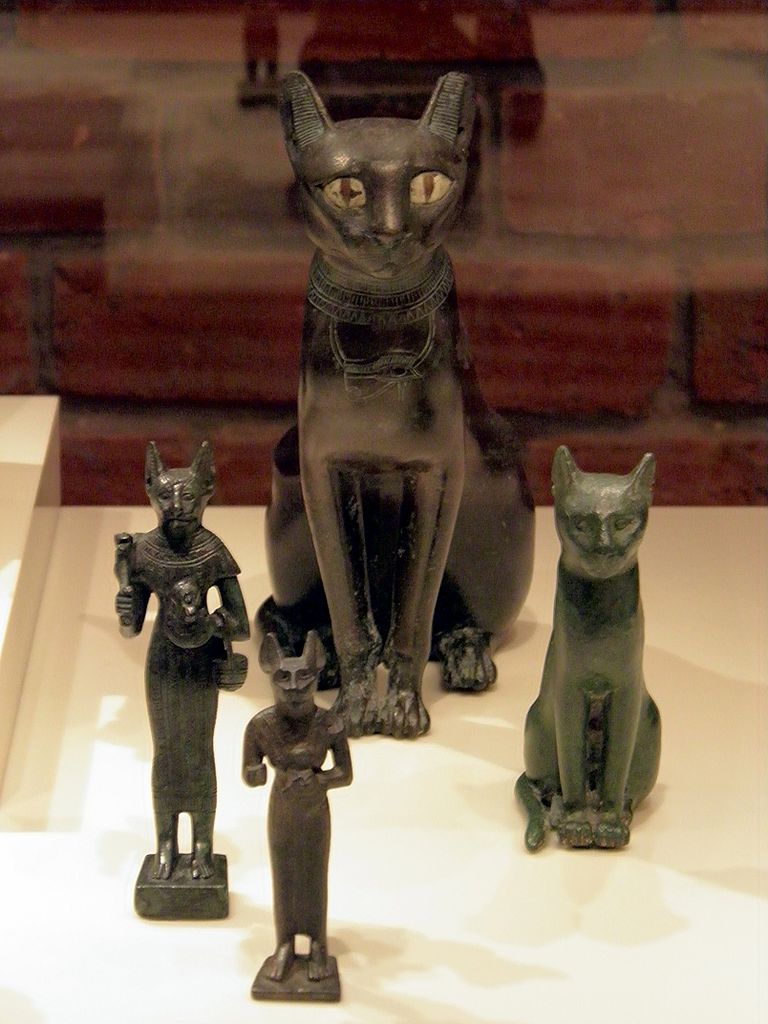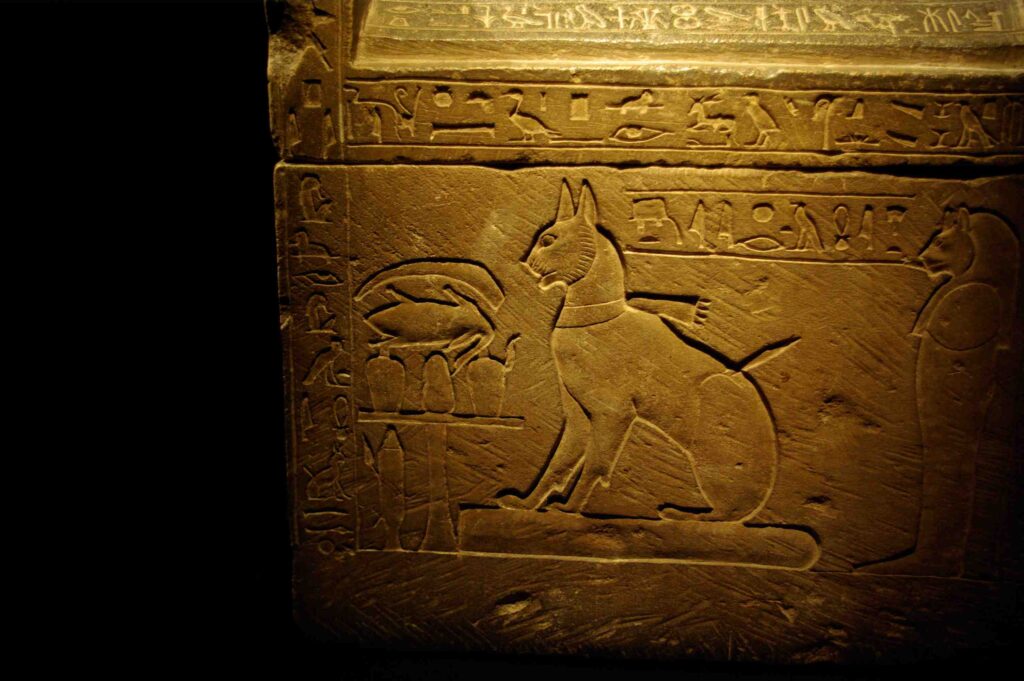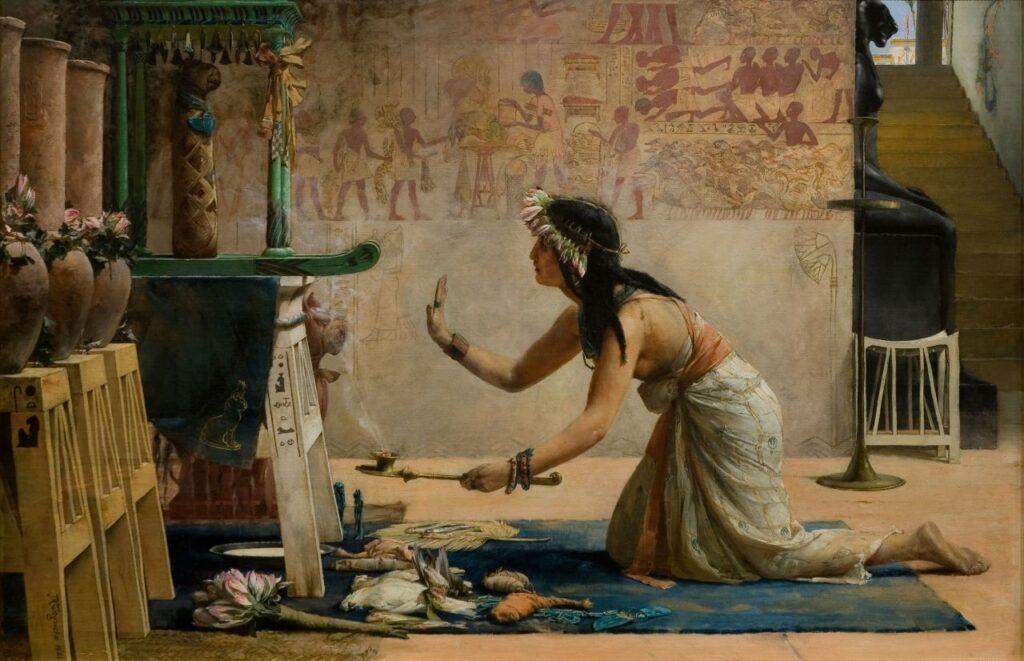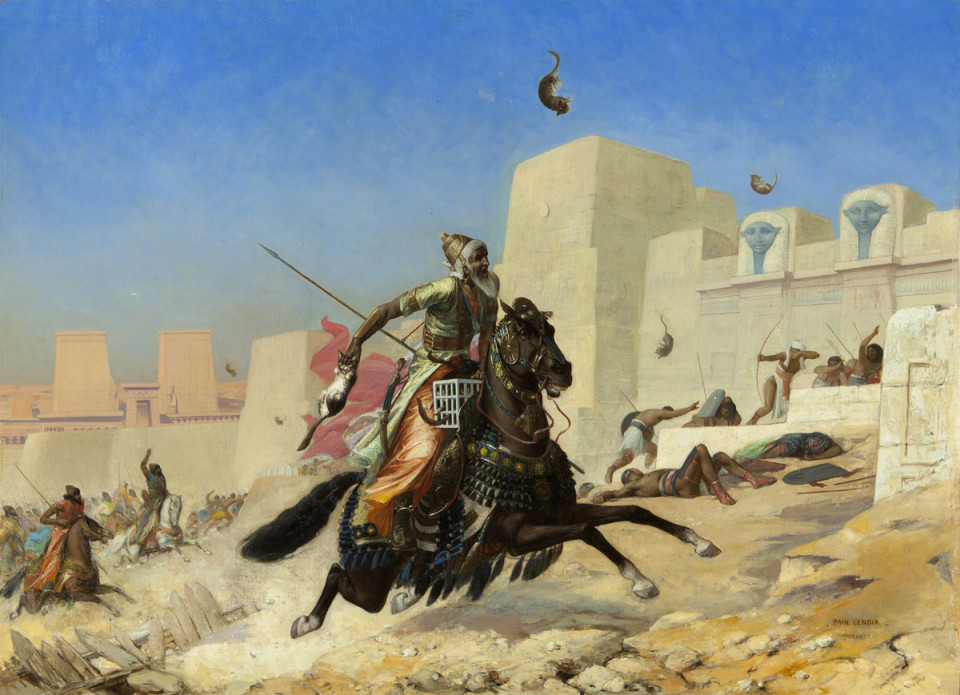What is the first thing that comes to mind when you think of Ancient Egypt or the people of this region? The pyramids? Old paintings? The Sphinx? Hieroglyphs? Of course, all of these things are incredible, but if you look closely, you’ll notice that one of the most intriguing aspects of Ancient Egypt is the society’s obsession with cats.

In certain ways, the ancient Egyptians revered many animals that shared their environment. Cats, in particular, enjoyed a very special position in the homes and hearts of many people of that particular region. Although they adored many other animals, cats were their favourite.
The ancient Egyptians adored cats to such an extent that they frequently prioritised the safety of their felines before their own. For example, if the family’s pet cat died, they would shave their eyebrows to mourn and continue to do so until the eyebrows grew back.
As a result, we can pause for a moment and reflect on why the Egyptians adored their cats so much. In general, the ancient Egyptians revered cats for two reasons: first, they protected crops from rats, and second, they were always strongly ingrained in ancient Egyptian belief and belief systems.
Ensuring food safety

Cats are said to have been domesticated some 10,000 years ago in Egypt, after some felines were lost on farms. Ancient Egyptian communities were predominantly agrarian, and they faced significant challenges in keeping their products safe from intruders such as rats and snakes. So, at a time when food was scarce, cats served an important function in ensuring food safety.
The ancient Egyptians discovered early on that wild cats could rescue their harvests by preying on invasive pests. Many families soon began providing food for the cats in order to get them to visit their houses more frequently. Almost all Egyptian families began having cats at one point, which helped to keep rats and other pests at bay.
This partnership became known as a symbiotic or mutual relationship, with both cats and Egyptians benefiting from it. Cats like living with humans since it provided them with food (worms and food left by humans), as well as the ability to dodge risks such as huge predators. The Egyptians, on the other hand, now have a completely free pest control system!
So it didn’t take long for migrant farmers, peasants, sailors, and merchants (that is, virtually everyone) to take domestic cats wherever they went. And that’s how cats were introduced in various places in Egypt.
The influence of myths and beliefs in the increasing popularity of cats

In addition to their ability to contain the advances of rodents, cats were also known to be spiritually important. For example, many Egyptians believed that if a cat appeared in their dreams, it would be a strong sign that good luck was on the way.
Cats were also closely associated with various religions in ancient Egypt. For example, one of the oldest Egyptian deities was the goddess Mafdet, who resembled a cheetah. She was adored by individuals seeking protection from deadly predators such as snakes, and she was also known as the representative of justice.
The ancient Egyptians’ devotion to cats was enormous

The greatest proof of the ancient Egyptians’ devotion to cats was seen at the Battle of Pelusium (525 BC), when King Cambyses II of Persia conquered Egypt. Cambyses was said to have known of the ancient Egyptians’ love for cats, so much so that he decided to harness this devotion for his own benefit during the war. At the time, he asked his men to gather as many cats as possible and also paint pictures of cats on their battle shields.
When the Persian army began moving towards Pelusium, several cats were hurled towards the Egyptians, while the others were kept in the arms of Persian soldiers. The Egyptians were so hesitant to engage in war (for fear of injuring cats) that they submitted to defeat and allowed the Persians to conquer the Egyptian kingdom.
The most fascinating aspect of all this is that several regulations were in place to protect cats in ancient times. For example, if a person accidentally kills a cat, the penalty could be death. Trading and exporting cats to other countries was also prohibited.
Also, cats were meant to be mummified after they died, and their owners were required to leave food for them on a regular basis. Cats and their owners were sometimes buried together to demonstrate the depth of their devotion.
Now that you know why Egyptians adored cats, you can treat them with a bit more respect the next time you see one on the street, just like ancient civilizations did thousands of years ago.



